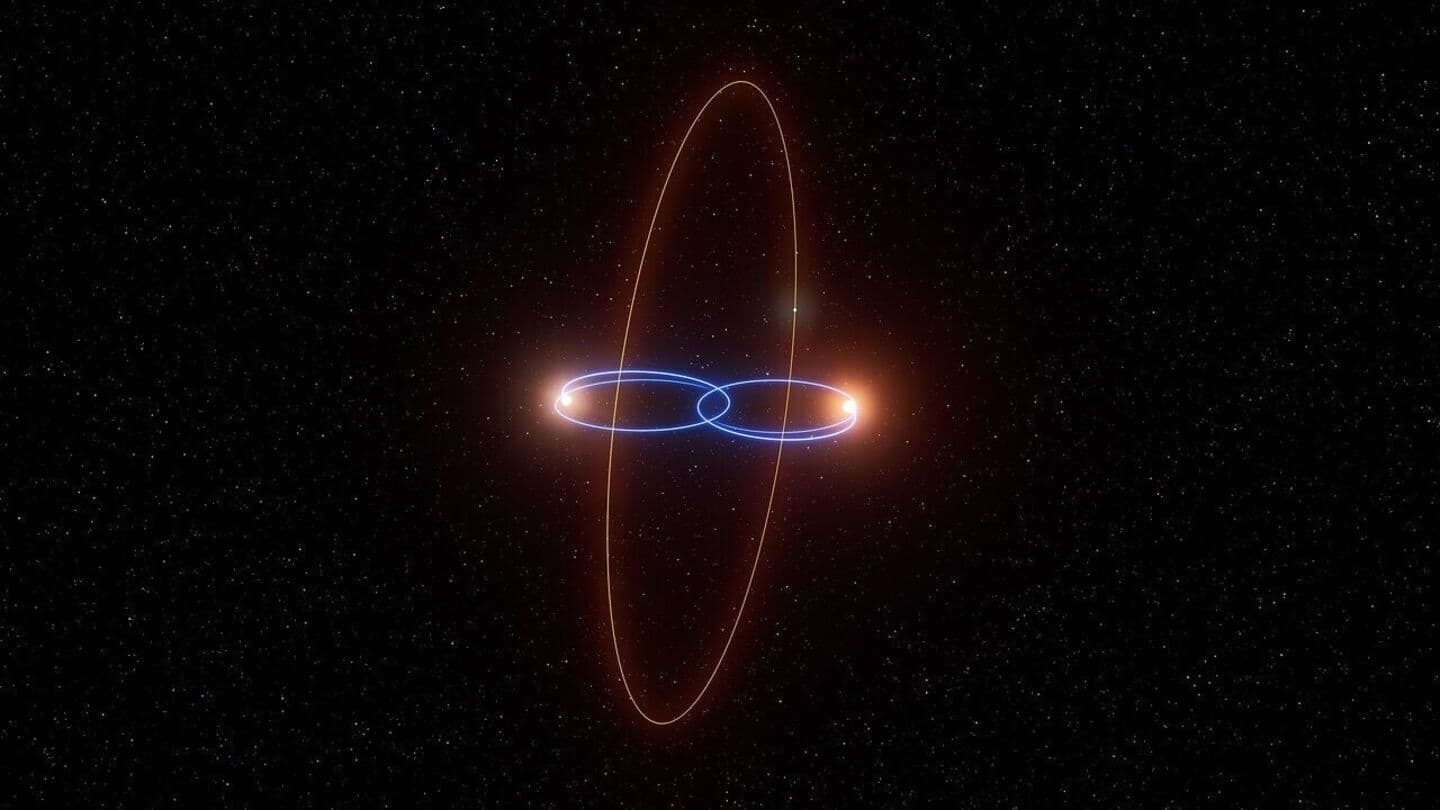
Star Wars becomes reality: Astronomers discover exoplanet orbiting twin stars
What's the story
In a groundbreaking discovery, scientists have found an exoplanet that orbits at a 90-degree angle around two stars, similar to Tatooine from Star Wars.
The celestial body, called 2M1510 (AB) b, is the first of its kind to be found on such a trajectory with respect to its parent stars.
The planet revolves around two young brown dwarfs, objects larger than gas-giant planets but too small to be proper stars.
Research
Discovery made using VLT
The discovery was made by an international team of researchers led by the University of Birmingham, using the European Southern Observatory's Very Large Telescope (VLT).
The two brown dwarfs in question—2M1510 (AB)—were first detected in 2018.
They are part of an "eclipsing binary," where one brown dwarf periodically obscures the other as viewed from Earth.
Unique find
Evidence for 'polar planet' orbiting binary stars
In a paper published in the journal Science Advances, the researchers presented strong evidence for a "polar planet" orbiting a pair of stars.
Thomas Baycroft, lead author of the study and Ph.D. student at the University of Birmingham, expressed his excitement about this discovery.
He said that they had suspected planets could exist on perpendicular orbits around binary stars but lacked clear evidence until now.
Process
Orbital measurement led to discovery
The exoplanet was discovered while the researchers were measuring the orbital and physical characteristics of the two brown dwarfs, using the Ultraviolet and Visual Echelle Spectrograph (UVES) instrument on the VLT.
The team noted unusual changes in their orbits, which led them to conclude that an exoplanet with a unique orbital angle existed.